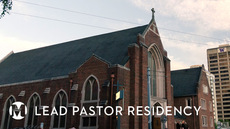“And we all, with unveiled face, beholding the glory of the Lord, are being transformed into the same image from one degree of glory to another. For this comes from the Lord who is the Spirit.” 2 Corinthians 3:18
The distinguishing mark of humanity at creation is our role as image bearers. Genesis 1:26 explains that we were created in the image and likeness of God. In that verse two words are used, “image” and “likeness.”
Both of these words allude to the dignity in being human, to reflect or display the image and likeness of God.
Paul uses a humorous reverse analogy to teach the Corinthians about their privileged calling. He asks them to recall Moses in 2 Corinthians 3, how he would meet with God 1-on-1. We’re told that after these encounters, Moses’ face actually shone with God’s glory. In verse 12, Paul then suggests that Moses wore a veil so that the Hebrews could not see that his glow was fading. Paul contrasts Moses’ periodic encounters and diminishing display of God’s glory with our constant indwelling by the Holy Spirit. Paul’s inference is that while Moses’ radiance faded when not beholding God’s glory, our display of God’s glory increases because of our constant exposure to him.
Bottom line: you cannot expose yourself to God’s presence without being transformed. Why?
1) Because God is life changing. You can see a picture of the Grand Canyon or of Haystack Rock at Cannon Beach and be in awe. But when you are there in person, you are different for seeing them—and they are only God’s finger paintings! When we are in God’s presence, he not only fills us with awe, but also transforms our hearts.
2) Because God’s glory enfolds upon itself. When Paul talks about our glory increasing from one degree to another, he suggests that the more we love, know, and live with Jesus, the more he is seen in and through us.
3) Because transformation is the work of the Holy Spirit. Much ink has been spilled on how habits, strengths, or predispositions are cultivated, and a common theme to all of the writing seems to be repetition. Repetitive trials and experiences etch pathways in our lives, establishing capacities or strengths. So, repetitive exposure to the Holy Spirit’s working in our lives is how he establishes progressive sanctification, or Christ-likeness. Moments of a surrendered heart, rejoicing, gratitude, peace, graciousness, and truth telling are all canal building etchings of the Holy Spirit as he creates sacred pathways to display the Lord’s glory through us.
The beauty of growing in our capacity to display Gods glory is the “now.” Progressive sanctification is not an excuse for an average day—it’s an invitation to a personal encounter with God, knowing that right now he is growing our capacities to bear his image and express his likeness.
New Christian, hope in experiencing Jesus today.
Parent, hope in God’s design for your child to display God, as a little one.
Mature Christian, hope in God’s design for you to display an ever-increasing glory.
Bill Clem is the lead pastor of the Ballard church.















